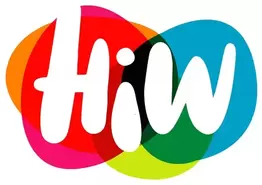Health Literacy
Health literacy levels in England are very low.
You can use this Geodatatool to find an estimate of the percentage of a local authority population with low health literacy and numeracy or with just low health literacy.
- 43% of adults aged 16-65 cannot understand word-based health information sufficiently well to make health decisions
- Where numbers are added in, 61% of adults are unable to understand and act on the information
You can use this Geodatatool to find an estimate of the percentage of a local authority population with low health literacy and numeracy or with just low health literacy.
Why does it Matter?People need trustworthy information to make decisions about health, but Patient Information Forum figures (published in 2020) show that
How we can make a differencePeople working in health and social care need to be aware of health literacy and of the techniques that can help to increase understanding.
Using techniques for better conversations makes a huge difference to decision making and patient experience. Find out about the Role of NHS Library & Knowledge Services in Health Literacy. |
Want to know more?Come along to our Health Literacy Sessions 10-11am Monday Join on your computer, mobile app or room device Click here to join the meeting Meeting ID: 341 594 752 945 Passcode: 3bgj9R Download Teams | Join on the web 2-3pm Monday Join on your computer, mobile app or room device Click here to join the meeting Meeting ID: 356 057 604 65 Passcode: DFaWWy Download Teams | Join on the web 10-11am Thursday Join on your computer, mobile app or room device Click here to join the meeting Meeting ID: 376 119 749 014 Passcode: o8BSXX Download Teams | Join on the web 2-3pm Thursday Join on your computer, mobile app or room device Click here to join the meeting Meeting ID: 369 720 744 815 Passcode: pw9RdA Download Teams | Join on the web |
Other Useful LinksThe Health Literacy Place (NHS Education for Scotland) http://www.healthliteracyplace.org.uk/ PIF (Patient Information Forum) https://pifonline.org.uk/ National Numeracy for Health https://www.nationalnumeracy.org.uk/ Health Literacy UK https://www.healthliteracy.org.uk/ LeedsLibraries for Health – information for patients and the public -https://www.leedslibraries.nhs.uk/resources/health-information-for-patients-the-public The Role of NHS Library & Knowledge Services in Health Literacy - https://onlinelibrary.wiley.com/doi/10.1111/hir.12371 |

